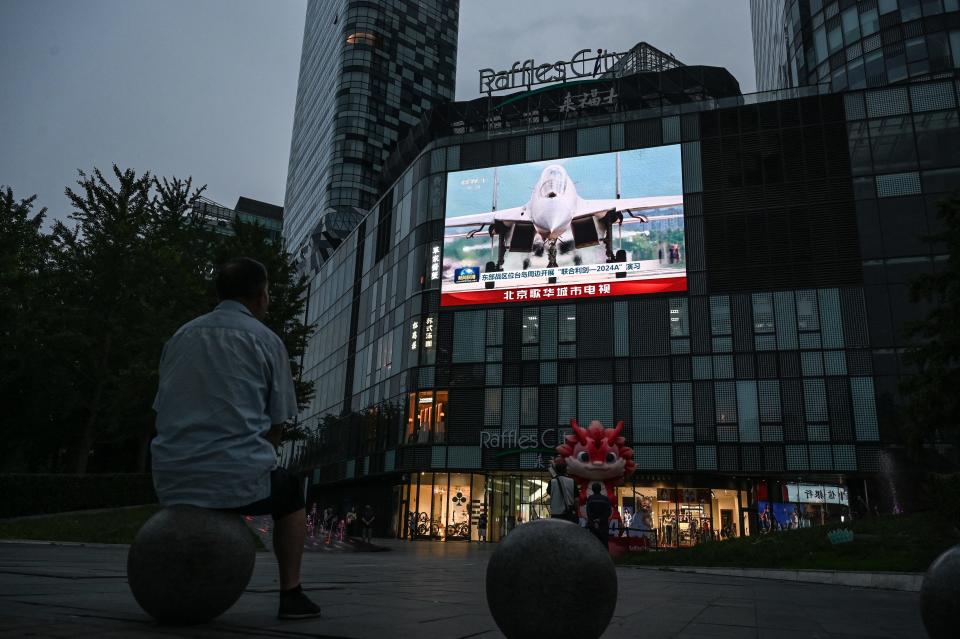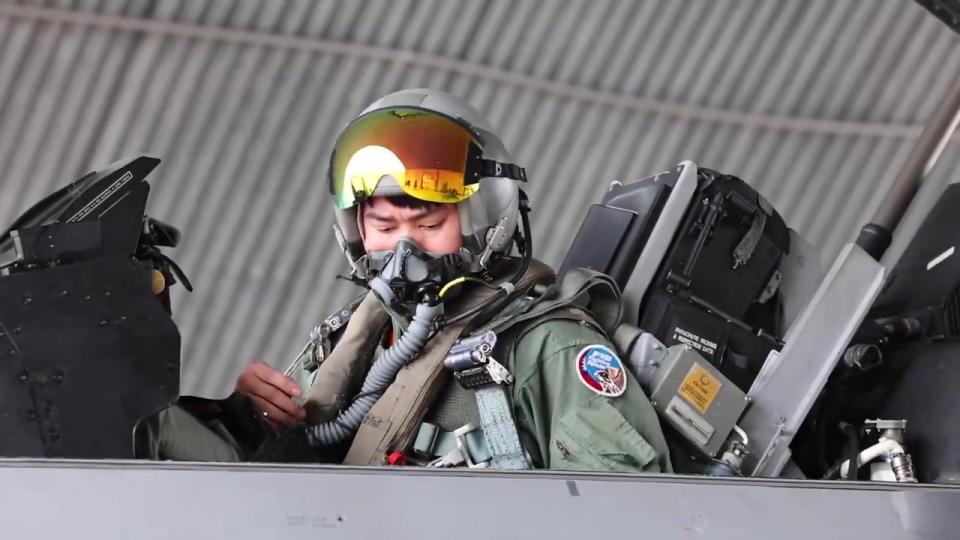China's military isn't just putting on a show of force. It's rehearsing for the real deal, an assault on Taiwan.
China says its large-scale exercise surrounding Taiwan is a test of its ability to conduct a real assault.
The two-day drills are a joint force effort, coming directly after the inauguration of Taiwan's new president.
An invasion is just one of the many strategies China can employ to force Taiwan into submission.
China's large-scale military drills around Taiwan aren't just a show of force in response to the remarks of the democratic island's new president. It's also a kind of rehearsal.
China says the joint force live-fire exercise, lasting two days, is a test of its ability to launch a full-scale, lethal assault on Taiwan and ultimately force it to succumb to Beijing's rule.
The Chinese People's Liberation Army exercise "Joint Sword" began Thursday morning, focusing on "joint sea-air combat readiness patrols, joint seizure of comprehensive battlefield control, and joint precision strikes on key targets," Chinese state media reported.
BBC China Correspondent Stephen McDonell posted a segment from CCTV showing the intended purpose of the simulated airstrikes during the exercise, during which live missiles were used. The report identified potential critical targets as ports and airports, among other points.
Giant fireballs explode into the air following an attack on #Taiwan in this graphic on #China Central Television CCTV which just went to air in a story about the People’s Liberation Army exercises over the last two days. pic.twitter.com/Z1FdXUvXmN
— Stephen McDonell (@StephenMcDonell) May 24, 2024
On Friday, the Chinese military's Eastern Theater Command said that it was continuing the drills to "test the ability to jointly seize power, launch joint attacks and occupy key areas."
In other words, China is using these drills to see how its forces would effectively execute an assault against the island of Taiwan in addition to demonstrating to Taiwan that it has the ability to pull off such an operation.

As China's Air Force, Navy, and Coast Guard conduct training operations around Taiwan's main island, as well as offshore islands, Taiwan has been sounding the alarm, sending out its forces to observe the exercises closely for signs of escalation.
Taiwan has scrambled fighter aircraft and put its naval and ground forces, including elements of its missile force, on alert.
Its defense ministry called the drills "irrational provocations and actions that undermine regional peace and stability."
"We stand by with firm will and restraint," the ministry added, saying, "We seek no conflicts, but we will not shy away from one. We have the confidence to safeguard our national security."
While "Joint Sword" isn't the first exercise of this kind, it is the largest in more than a year and comes just days after the inauguration of the island's newest president, the Democratic Progressive Party's Lai Ching-te, who is hated in Beijing for his positions on Taiwan's sovereignty.
Lai's election marked a historic third consecutive term for the DPP, which often takes a stronger stance on cross-strait relations and prioritizes Taiwan's autonomy. Lai has indicated he'll largely continue his predecessor's policies, and he has already agitated the Chinese leaders in Beijing, who perceive Lai's recent rhetoric as fueling pro-independence sentiments. China has said the exercises are intended as "strong punishment."

Beijing has a lot to gain from the military drills, from understanding operation logistics and joint force cooperation to demonstrating military power to attempting to intimidate the people of Taiwan into accepting that unification is inevitable.
Training doesn't necessarily mean an invasion of Taiwan is imminent, but the drills are a stark reminder that China has never taken the use of force off the table with regard to Taiwan.
The use of force against Taiwan could take different forms, from an all-out assault to something like a blockade. The latter could cut Taiwan off from the rest of the world, prevent the US and its allies from coming to the island's aid, and potentially force Taiwan to give in to Beijing's demands.
Strikes on Taiwan's infrastructure, too, could leave its people without clean water or electricity, rapidly degrading the quality of life and potentially the island's will to resist.
But China could also pursue other courses of action. While the US and its allies are actively discussing how to respond to an assault on Taiwan, some experts believe they may be missing more likely scenarios for China to take over Taiwan — some of which are already happening in the form of continuous pressure and coercion.
Read the original article on Business Insider


